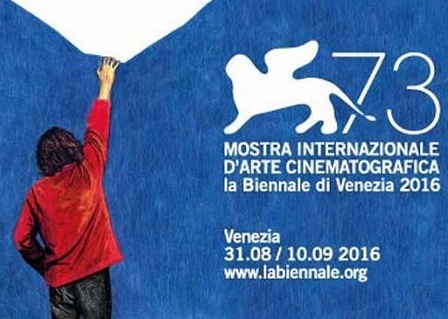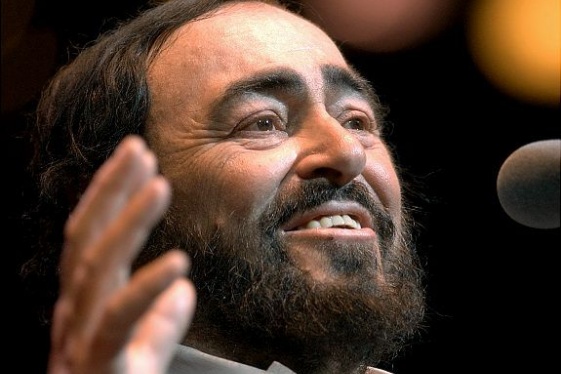

WTI Magazine #83 2016 September 16
Author : Edoardo Peretti Translation by:
The victory of "Liberami" by Federica di Giacomo in the Horizons section (the outside the competition part dedicated to young directors and new trends of the Venice Film Festival) was the only award won by an Italian film at the 73th edition of the Venice Film Festival 2016. The three Italian films selected for the competition did in fact leave the Lido empty handed.
To be honest, we have to say that, as they were not bad movies, the verdict was right, given the greater quality of other selected titles). Italy didn't even win a lesser prize, which as a non-written tradition is usually awarded to the host country. Still, it is worth write something about these Italian movies.
The aforementioned "Liberami" by Federica Di Giacomo is an entertaining documentary on the practice of exorcism conducted by correspondence in Sicily, which the director transforms in human and at times hilarious comedy. "Liberami" is an example of how the documentary in recent years is kind of losing its most deeply rooted characteristics, experimenting and interbreeding with other genres and with fiction (a process that, in certain contemporary Italian cinema, also happens in the reverse way). Di Giacomo's victory was well earned, even in a selection of medium-high level competitors, as often happens better overall of the official competition.
As already told, Italy had three movies in the official competition: "Spira mirabilis" by Massimo D'Anolfi and Martina Parenti; "Piuma" from the Pisa native Roan Johnson; and "Questi giorni" by Giuseppe Piccioni.
The first is, again, a documentary, and again not a traditional one: it is a succession of images and ideas that aim to excite and talk about every aspect of life and its development. An experimental opera that can surely charm, if the viewer is willing to follow the rules of the game.
More traditional (maybe too much) are the other two films. "Piuma" is a pleasant and likeable comedy dedicated to two teenagers who, suddenly and living with a thousand of problems whatsoever, find themselves expecting a child. The look is discrete and kind, the comedy is well-dosed and the narration tries to identify as much as possible with the inner of the two young protagonists, even with almost dreamlike inserts of magical realism - probably the best moments of the film. It is a light film, in fact, like a feather (the title, "Piuma", means feather), definitely sincere and sympathetic towards the characters and their torments, gentle in dealing with the thorny issue.
Also filled with intimism is "Questi giorni" by Giuseppe Piccioni, experienced director and author of films, who even with no masterpieces in his resume has worked in the Italian average "cinema" of the last two decades. With a good ability to tell feelings and loneliness, most obvious and effective than in many other films and filmmakers of the same genre, Piccioni would have deserved to be famous more, for example, of Ozpetek and the Comencini sisters, also because of his lack of the ambition and cunning fake-authorship shown by these latter). "Questi giorni" tells the classic trip of a lifetime of a group of four teenage best girlfriends: a journey where the four grow, gain awareness, learn to know themselves and the others.
Nothing particularly new under the sun, but an undeniable ability to outline psychologies changing, alternating drama and comedy and sketching characters with which it is easy to empathize.
You may be interested
-
New York Italians Movie Night: "C'eravamo ta...
Dear Friends, New York Italians in collaboration with Fordham University, Department...
-
Pavarotti. Il mondo di Big Luciano. Anteprim...
Il mondo di Luciano Pavarotti e la sua grande carriera di cantante lirico rivivranno il 23...
-
'A League of Their Own' director Marshall dea...
Actress and director Penny Marshall, whose love of sports made her a regular in the Los An...
-
'Alone': How Italian town with 1st known viru...
Italy delivered the first shocking confirmation of locally transmitted coronavirus infecti...
-
'Avengers: Infinity War' Directors Inducted I...
The Russo Brothers were a pair of the Marvel Cinematic Universe's best directors even prio...
-
'Boardwalk Empire' Season 5 News: Vincent Pia...
Recently, actor Vincent Piazza, who plays up-and-coming gangster Lucky Luciano on the show...
-
'Bottom of the 9th': Film Review
With films like Two Family House and City Island, director Raymond De Felitta found easy c...
-
'Buongiorno Papà' vince Nice Festival Usa
'Buongiorno papà' di Edoardo Leo, film sui quarantenni single in Italia, interpretato da R...










